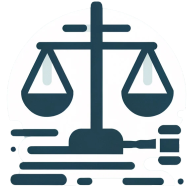How Do You Manage Sudden Changes in Corporate Law?
When corporate law shifts unexpectedly, professionals must pivot swiftly to remain compliant and protect their interests. A Civil Trial Law Specialist begins our exploration by recounting the challenge of navigating sudden tax law changes. Alongside expert perspectives, we also present additional answers, such as leveraging AI for legal analysis, to capture the full spectrum of strategies employed in response to rapid legal transformations.
- Navigating Sudden Tax Law Changes
- Adapt Cryptocurrency Asset Protection
- Initiate Cross-Departmental Strategy Meetings
- Consult External Legal Counsel Promptly
- Expedite Compliance Training Programs
- Revise Company Policies Swiftly
- Leverage AI for Legal Analysis
Navigating Sudden Tax Law Changes
There was this time a couple of years back when there was a sudden shift in corporate tax law that had us all scrambling. It was one of those moments where you feel like you're in a whirlwind trying to catch up. Our firm, Schmidt and Clark, prides itself on staying ahead of the curve, but sometimes even the most prepared can be caught off guard.
So, here's what happened: The government passed a new tax reform bill that had significant implications for our corporate clients. Overnight, there were changes in deductions, credits, and even the overall tax rates. It was a massive overhaul, and suddenly, every strategy we had been advising our clients on needed to be reevaluated.
In times like these, there's no room for panic. As a team, we quickly mobilized, gathering all the necessary information, poring over the new legislation with a fine-tooth comb, and brainstorming solutions. It was a high-pressure situation, but our firm thrives on challenges like these.
Communication was key. We reached out to each of our corporate clients, explaining the changes and how they affected them specifically. It was crucial to ensure they understood the implications and had a clear path forward. Additionally, we conducted internal training sessions to ensure everyone in the firm was up to speed on the new regulations.
Adapting to sudden changes in corporate law requires agility, teamwork, and a cool head. While it was undoubtedly a hectic time, it was also incredibly rewarding to see how we came together as a firm and navigated through the storm.

Adapt Cryptocurrency Asset Protection
When faced with a sudden shift in corporate law that directly impacted the operation and asset protection strategies of my clients, especially those holding or interested in cryptocurrency as part of their portfolio, I had to adapt swiftly.
Cryptocurrencies, characterized by their decentralized and borderless nature, introduce unique challenges within the legal and asset protection realms. They represent more than just another asset class; they signify a fundamental shift in how value is stored and transferred, necessitating innovative legal strategies to ensure comprehensive protection against both existing and emerging risks.
In response to this dynamic landscape, my initial action was to deepen my comprehension of the evolving legal framework surrounding cryptocurrencies. Acknowledging that traditional asset protection methods might not fully address the distinct risks associated with digital currencies, I undertook an extensive examination of the latest legal precedents, regulatory advancements, and technological progressions in blockchain and cryptocurrency. This included a nuanced understanding of how various jurisdictions perceive and treat digital assets, particularly concerning litigation and creditor claims.
I leveraged this knowledge to develop and implement a tailored asset protection strategy for clients with cryptocurrency holdings, including:
- Creating Specialized Trusts: Recognizing the unique nature of cryptocurrencies, I utilized specialized trusts designed to hold digital assets securely. These trusts were established in jurisdictions with favorable laws for digital assets, providing a legal shield against potential lawsuits or creditor claims.
- Diversifying Holdings: To mitigate the risk of regulatory shifts in any single jurisdiction, I advised clients on diversifying their cryptocurrency holdings across multiple jurisdictions. This strategy leveraged international asset protection laws, reducing the overall risk exposure.
- Utilizing Offshore Structures: For high-risk clients, I recommended integrating offshore companies and foundations as part of their asset protection strategy. These structures provided an additional layer of privacy and security, making it more challenging for potential litigants to access or seize cryptocurrency assets.
- Regular Legal Reviews: Given the fast-paced evolution of cryptocurrency regulations, I instituted a protocol for regular legal reviews of my clients' asset protection structures.

Initiate Cross-Departmental Strategy Meetings
When sudden changes in corporate law occur, initiating cross-departmental strategy meetings can be crucial. These gatherings facilitate the sharing of vital information and ensure that all departments are on the same page regarding the new legal environment. Collaboration during these meetings can lead to innovative solutions that ensure compliance across the company.
This proactive approach helps to minimize confusion and enables a unified response to the law changes. Consider organizing a strategy session today to streamline your company's adaptation process.
Consult External Legal Counsel Promptly
In response to abrupt adjustments in corporate law, promptly consulting external legal counsel is a wise course of action. Experts specializing in corporate legislation can offer invaluable advice tailored to the specific needs of the company. Their external perspective can shed light on the most efficient paths to compliance, potentially saving the company from costly legal missteps.
Relying on their specialized knowledge can streamline the transition process significantly. Reach out to a trusted legal expert to help navigate these changes effectively.
Expedite Compliance Training Programs
With the introduction of new corporate laws, expediting existing compliance training programs can be very beneficial. By accelerating the education of staff, you ensure that every employee is up-to-date with the latest legal requirements and understands their role in adhering to them. This not only promotes a culture of compliance but also encourages employees to take personal responsibility for the company's legal integrity.
Strengthening the compliance training programs now will help to future-proof the organization against similar changes. Act today to update and improve your company's compliance training initiatives.
Revise Company Policies Swiftly
Adapting to new corporate laws often necessitates swift revisions of existing company policies. These policies must reflect the latest legal requirements to avoid penalties and maintain corporate integrity. The process involves careful examination and modification of current guidelines to ensure full legal compliance.
By actively revising your corporate policies, you not only protect the company but also set a precedent for quick adaptation in the future. Begin reviewing your policies today to ensure they are in full compliance with the new laws.
Leverage AI for Legal Analysis
Leveraging artificial intelligence (AI) for rapid legal analysis can be a game-changer when facing sudden changes in corporate law. AI technology can parse large volumes of legal text and extract relevant insights much faster than manual methods. This can give companies a competitive edge by quickly identifying the implications of the new laws and aiding in strategic decision-making.
By adopting AI tools for legal analysis, businesses can ensure a more efficient and accurate response to legal changes. Explore AI options now to enhance your company's legal analysis capabilities.

